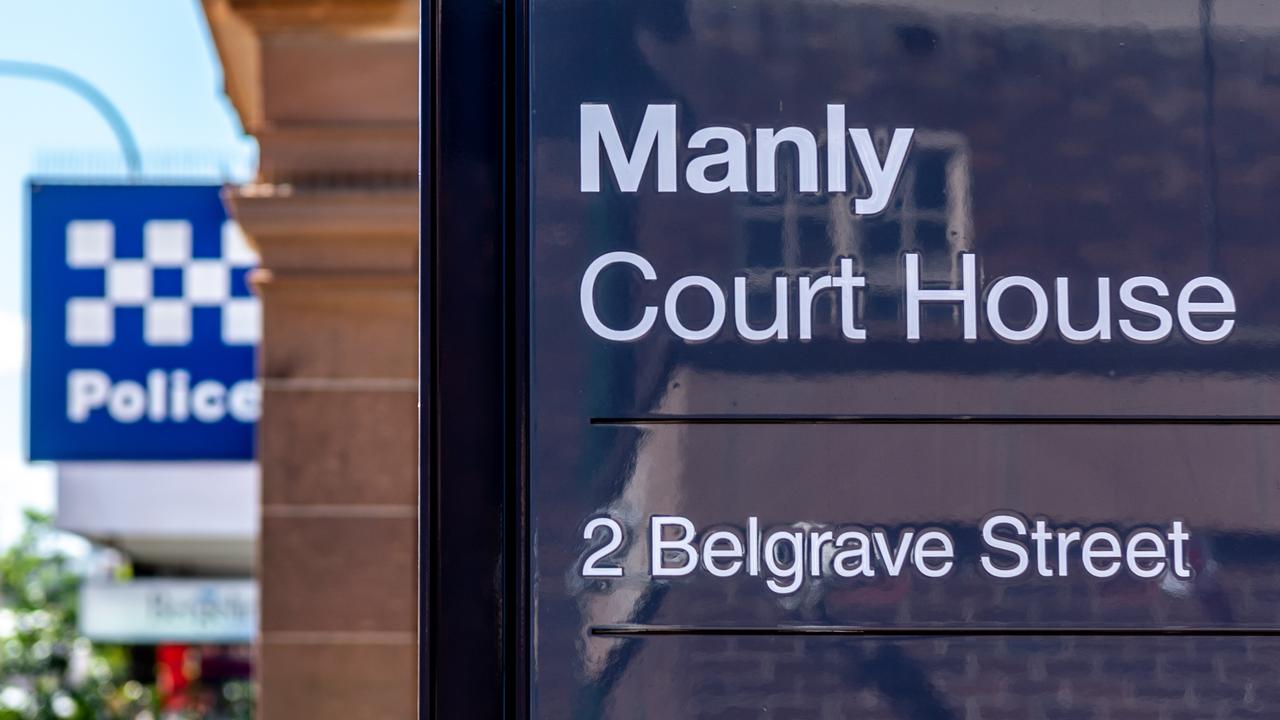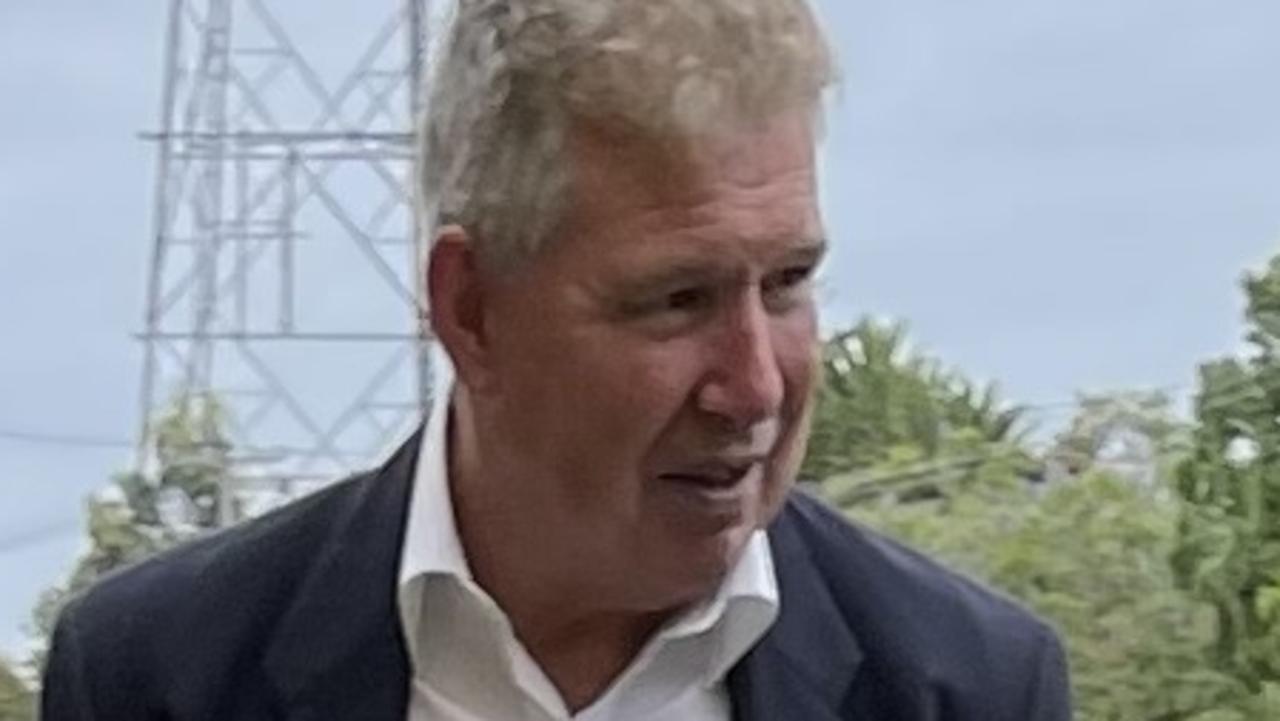Revealed: How six courageous women unmasked pedophile swim coach Dick Caine
Olympic swim coach Richard ‘Dick’ Caine was considered a god among men in Australian swimming circles. It took five decades — and the courageous testimony of six women — to unmask the serial predator he is.

Police & Courts
Don't miss out on the headlines from Police & Courts. Followed categories will be added to My News.
For more than five decades, Richard ‘Dick’ Caine was considered a god among men in Australian swimming circles.
Celebrated for his remarkable ability to train Olympic and world champions, Caine’s Carss Park school attracted thousands of young swimmers, dreaming of a career on the international stage.
But behind closed doors, Caine was sporting a dark secret that would take decades – and the testimony of six courageous women – to come to light.
For it was Caine’s god-like reverence, and the power he wielded over those around him, both young and old, that allowed his secret sexual abuse of young female swimmers to go undetected for so long.
In a Sydney court last week, Judge Paul McGuire acknowledged the reality that those six women knew all too well – Caine had their futures in his hands and if they wanted that future to be in swimming, they had better keep their mouths shut. So, for more than 40 years, they largely did.
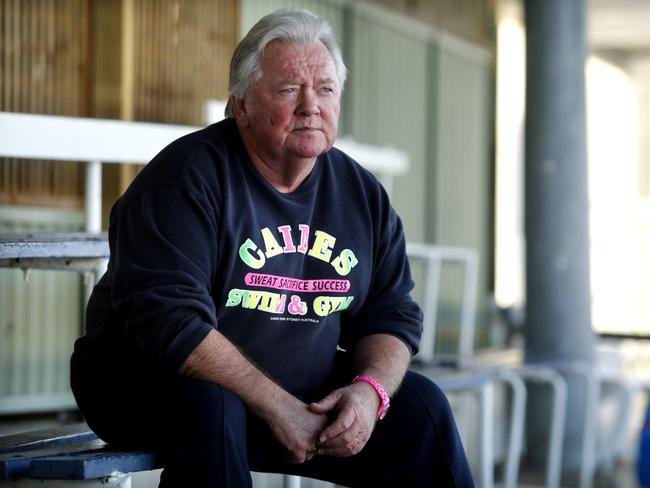
But by January 2021, one woman could take it no longer and finally told police about the monster lurking in the deep end.
Eighteen months later, just after daybreak on a cold winter’s morning, detectives arrived at Caine’s Condell Park home, arrest warrant in hand.
Police cameras were rolling as Caine, dressed in a grey tracksuit and flanked by two plain clothes officers, was ushered into an unmarked car and taken to Bankstown Police Station.
By that afternoon, footage of the arrest was all over the news – and Caine’s abhorrent secret was a secret no more.
The ‘ants pants’
Caine, the eldest of nine children and a keen swimmer from an early age, was in his mid-20s when he was awarded the $3,000-a-year lease for the Kogarah War Memorial Pool that would eventually become his hunting ground.
From modest beginnings in 1971, the Dick Caine swim school quickly grew into a powerhouse for potential stars, with hundreds of swimmers flocking to the Carss Park facility, its walls soon littered with photographs of success stories both in and out of the pool.
Every morning, dozens of students pounded the proverbial pavement, the black, watery centre-line marking each pool lane proving both a comfort and torment.
The omnipresence of that line below the surface was matched above the water in the form of Caine, who ruled each and every training session with an iron fist.
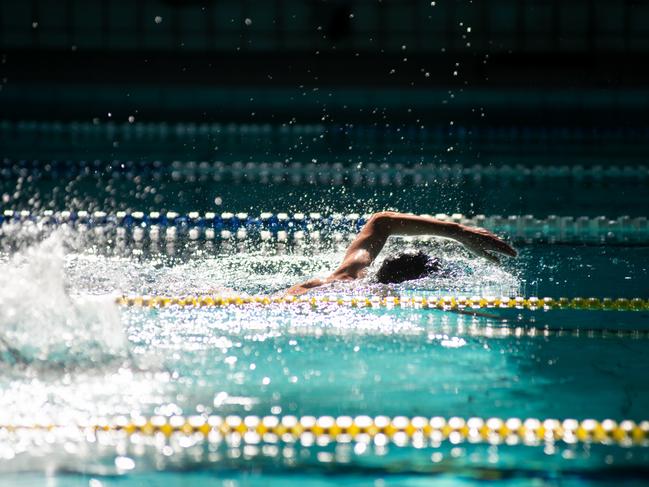
Many of those who gave evidence at Caine’s special hearing recalled how his aggressive coaching style left them deeply fearful of the now 78-year-old – and totally ill-equipped to speak up when he began sexually abusing them.
One said Caine regularly kicked swimmers in the bottom, hurled kickboards and lane ropes at them and even stepped on swimmers’ fingers on the starting blocks when he became angry.
Another woman described Caine as “incredibly verbally and physically abusive”, saying he would routinely demean swimmers and played vicious and humiliating mental games with them.
She said Caine would regularly remove students from the pool, tell them they were “kicked out” of the squad and have their parents collect them.
Of her own experience, the woman recalled having to “grovel” to her parents and Caine to be allowed back into the squad after one such incident.
She said she was petrified of Caine as a result of his coaching style.
“I was scared to death of not training hard enough, not doing what he wanted,” she said, adding her dream had been to go to the Olympics.
Despite this highly abusive behaviour, which took place in full view of the public and other swimmers, parents remained enamoured with Caine, witnesses said.
“My parents thought he was the ant’s pants,” one woman recalled, saying her father and Caine shared a love of harness racing and football.
She told the court everyone had Caine “on a pedestal”, thought he was “God” and that being around him was “like a cult”.
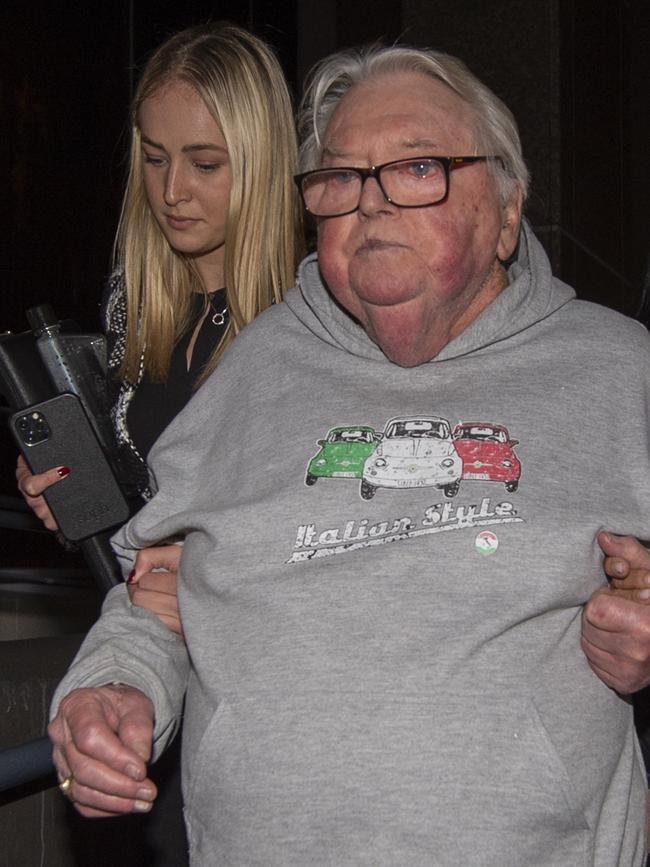

Another said her parents treated Caine like a hero.
Both women said it was an era where adults considered that children should be “seen and not heard”, and that kids were meant to respect their elders, no matter what.
They said they felt powerless to speak up about the sexual abuse when it began because of Caine’s tremendous influence, their terror of him both in and out of the water, and fears they would not be believed by police or their own families.
The latter belief materialised for one woman, who said she tried telling her mother about the sexual abuse at the time.
In response, her mother accused her of telling “horrible lies” and washed her mouth out with soap and water.
“She threatened to send me to ‘a home’ if I kept telling ‘lies’,” the woman said.
“That day killed me.”
‘The devil’s not ready for you yet’
Caine may have been a tyrant by the pool, but he presented himself as a coach who took care of his students – one who would go the extra mile to ensure they were in top shape.
That extra mile usually came in the form of an offer of a one-on-one massage, designed to ease tired muscles and promote recovery.
But the women who gave evidence against Caine said the massages were anything but relaxing, as Caine repeatedly forced himself on them behind closed doors.
They said he also molested them in the centre’s sauna and the girl’s toilets, often while other swimmers were still practising their strokes in the pool.
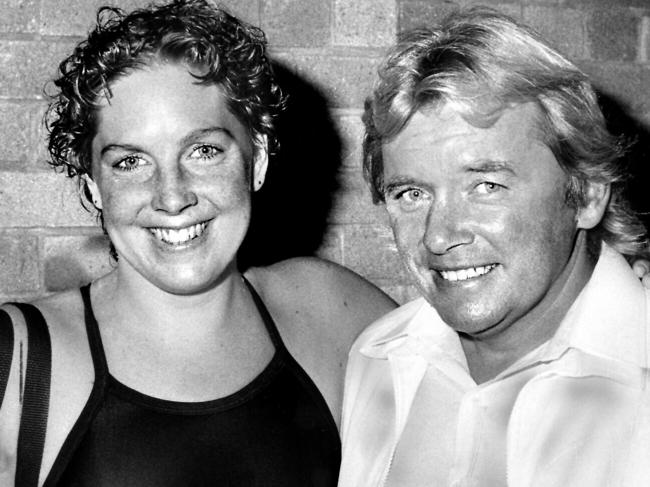
Outside of training hours, Caine went above and beyond to maintain the image of a dutiful coach, mentor and friend, organising social events for the students including barbecues, trips to the movies and meals at a Chinese restaurant at Kogarah, only some of which were attended by parents.
But it was the twice-monthly sleepovers at his house – sans parents – where Caine’s deplorable behaviour was allowed to flourish even further.
The court heard Caine would invite up to six swimmers at a time to stay at his house, both boys and girls.
The women who gave evidence in court recalled how he would take one girl into his bedroom for a time, alone.
Some recall being shown pornographic material, while others said they were fed alcohol.
One woman told the court when she was taken into the room, Caine removed her clothes and used rope or the reins from a horse’s bridle to tie her hands to the bedhead, then raped her.
The same woman recalled another incident where she was raped in the back of Caine’s car after he’d dropped several other students off at their respective homes at the end of training.
“I cried myself to sleep that night,” she said.
The woman told the court the last time she saw Caine was at a swimming function when she was an adult.
She said she squeezed his cheeks, called him a “prick” and said “do you know why you haven’t died yet Dick? Because the devil is not ready for you yet.”
‘His dying breath’
Caine was charged with nine offences against two girls following his initial arrest.
He was released on conditional bail less than 12 hours later, after a magistrate accepted evidence from his wife Jenny that he was dying of cancer and had only months to live.
Outside court, defence lawyer Brian Wrench claimed police had charged “an innocent man”.
“He is going to fight to his dying last breath to clear his name, it’s a terrible situation,” Mr Wrench said at the time.
But in the months that followed, Caine was hit with more than two dozen further charges as more victims came forward to report their stories of abuse.
By the time the case was ready for trial, Caine was facing 39 charges from six different victims.

At the same time, his legal team raised concerns about his mental capacity.
Caine was subsequently found unfit to stand trial under criminal law after being assessed by psychiatrists.
The case proceeded by way of a special hearing under mental health legislation, with Caine taken to have pleaded not guilty to the charges.
Dozens of witnesses gave evidence throughout the five-week hearing, but the case was shrouded in secrecy after Caine’s legal team secured a last-minute gag order amid fears their client might commit suicide if the case was reported in the media.
That order was lifted last week when Judge McGuire found the prosecution had proven its case in all 39 charges against Caine, on the limited evidence available.
However, Caine was found not criminally responsible for his acts because of his deteriorating mental and physical health.
An academic exercise
Given Caine’s terminal cancer diagnosis – he is currently in palliative care and not expected to live much longer – what lies ahead in terms of the court process is perhaps an academic exercise.
He will not face a traditional sentence, as he would have had he been found guilty under the normal process, but the court will instead reconvene to decide where and for how long Caine should be detained.
Solicitor Matt Ward, of specialist criminal law firm Morrisons, explains:
“When an accused is found to have committed the offences charged, on the limited evidence available to the court, they will likely become a forensic patient under the care of the Mental Health Review Tribunal,” he said.
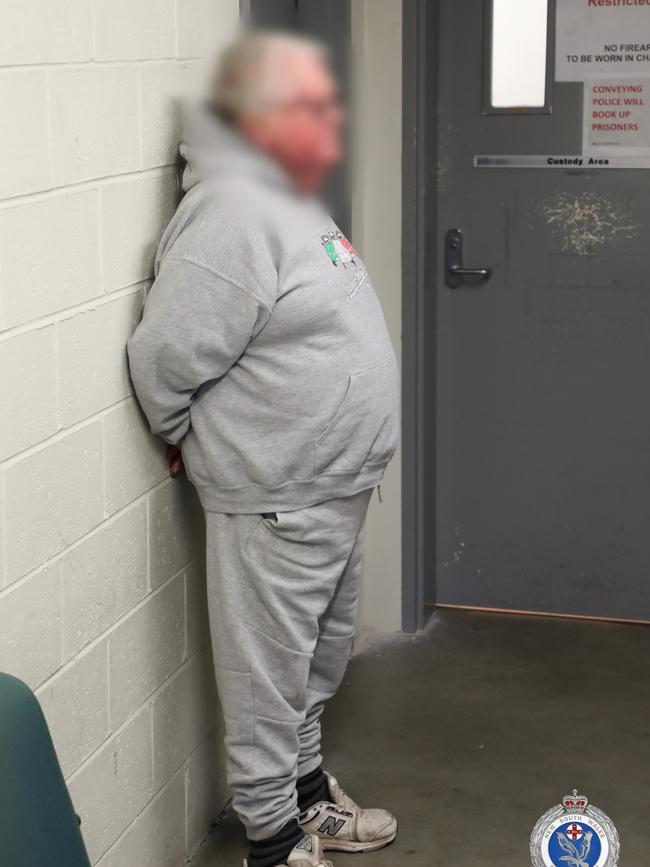
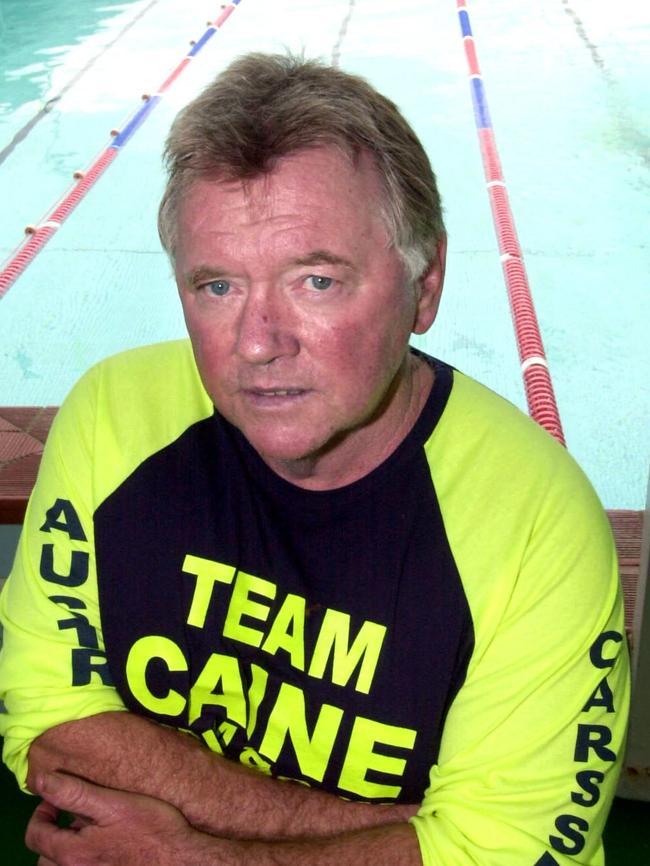
“Because of the seriousness of these charges and the number of them, the court will impose what’s called a ‘limiting term’ – that is, the maximum length of time the accused can be detained by authorities.
“The court will decide when reviewing all of the material where the person should be detained, including in a mental health facility, which can be inside or outside a jail.
“It’s also possible, depending on the circumstances, that an accused person can also be kept in a facility such as a secure nursing home or a palliative care unit if their health is such that they don’t have long to live.”
As part of the next legal step, Caine’s victims will have the opportunity to read out statements in court detailing how his crimes have affected their lives, though it is highly unlikely he will be present to hear them speak.
For some victims, the day will likely mark a turning point in their lives, but for others, the pain remains ever-present.
As one victim put it so succinctly, when asked during the trial if she’d made it all up: “He ruined me. I could have been something and he took that away from me”.




